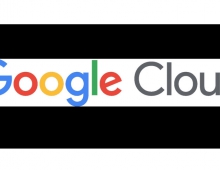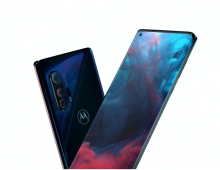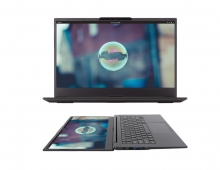
Linux, Open Source Put to Test in New Motorola Smart Phone
Motorola is moving Linux and open source into the smart phone space with its new A780 handheld.
featuring MontaVista Software's Linux operating system and now the open source Berkeley DB data manager, but analysts say Linux remains on hold in mobile phones because Microsoft, Palm, and Symbian operating systems still dominate the space.
Few doubt there is significant opportunity for Linux and open source in the mobile device market, and efforts such as the A780 -- to be among the first Linux smart phones available in the U.S. when released before the end of the year -- are evidence. The Linux operating system -- pushed most in the mobile space by MontaVista and supporters such as OpenWave -- offers flexibility and freedom from licensing issues that have scared off Asian manufacturers.
Even though there is a lack of the kind of lock-in that exists in the desktop and server markets, Linux has yet to be fully proven and demonstrated on the go, according to Yankee Group analyst John Jackson.
"There's an opportunity, but it is not clear how successfully or effectively it can be exploited," Jackson said.
Smarter phone
Motorola does not even mention the MontaVista Linux or open source Berkeley DB in its description of the A780, but backers of Linux and open source in mobile devices, such as MontaVista product marketing manager Jacob Lehrbaum, said the industry is rapidly accepting Linux for its openness and flexibility.
Aimed at mobile professionals, the A780 offers PDA capability, full-motion video recording, and a color touch screen. The handset supports faster, EDGE network connectivity, and can also display Word, Excel, PowerPoint, PDF, MP3, and JPG files.
Through the cost curves with Linux
Yankee Group's Jackson said users, as well as wireless handset manufacturers, are most interested in the operating system that works best for their needs.
"Motorola has built a mass-market smart phone with a view to running Java over MontaVista Linux," Jackson said of the A780.
The analyst said past Linux smart phone efforts had failed and that the use of Linux over Palm, Symbian, or Microsoft operating systems has been limited to small amounts in Europe and Asia.
Still, Jackson said a couple of vendors "with significance" have validated MontaVista's Linux platform as one that is suitable for mobile communications and applications.
As for smart phones in general, however, Jackson said there remains "a lot of sound and a lot less fury."
"It's just a question of who can traverse the cost curves into a market success," Jackson said. "Right now, it looks to be Symbian. Linux is a bit of a dark horse because it's an unproven commodity."
Higher-level OS, higher-level barriers
IDC analyst Alex Slawsby said the smart phone and wider mobile market present an opportunity for Linux and open source because it is newer than the desktop and server markets.
"In the phone world, it's a different paradigm," Slawsby said. "No one's got a lock on anything."
However, Linux in hand has been limited in the U.S. largely to the Sharp Zaurus PDA, and there are other barriers to using Linux in a handset, Slawsby said.
"There are higher barriers to overcome to build higher-level operating systems in smart phone devices," Slawsby said. "[Linux and open source] haven't had much impact, but it's something that at least is drawing interest for its flexibility. Down the road, it may have some potential, given the flexibility it gives you on phone design."
For now, Linux may be suffering from a lack of support -- tool kits, toolsets, literature, etc. -- compared to that provided for developers by other operating system vendors, particularly Microsoft, Palm, and Symbian, according to Slawsby.
"The concern, though, is it is even harder to develop a Linux phone than one based on Microsoft or Symbian," he said. "When it comes to Linux, it's more difficult."
Adding that most users are not aware there is software in their cell phones, Slawsby agreed that the brand or type of operating system in a smart phone is not as important as its capabilities.
"A smart phone is such a hugely marketable concept, but when it comes down to it, the technology is sort of like Bluetooth. It's just progressing -- and slowly -- because the true benefits have not been articulated clearly."
From NewsForce





















